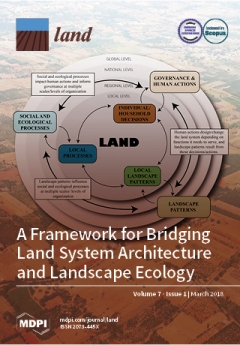Resources
Displaying 2256 - 2258 of 2258Towards a Simpler Characterization of Urban Sprawl across Urban Areas in Europe
Urban sprawl is a concept commonly used to describe the physical expansion of urban areas. It is traditionally associated with lower residential density, poorer connectivity, and higher energy costs for heating and transport. From the period of 1980 to 2000, the extent of the built-up area in Europe has increased at a rate three times higher than that of population increase, and urban sprawl is now recognized as a major challenge. However, for policies to address this issue, it is essential to be able to identify and quantify sprawl.
Satellite Monitoring of Vegetation Response to Precipitation and Dust Storm Outbreaks in Gobi Desert Regions
Recently, droughts have become widespread in the Northern Hemisphere, including in Mongolia. The ground surface condition, particularly vegetation coverage, affects the occurrence of dust storms. The main sources of dust storms in the Asian region are the Taklimakan and Mongolian Gobi desert regions. In these regions, precipitation is one of the most important factors for growth of plants especially in arid and semi-arid land. The purpose of this study is to clarify the relationship between precipitation and vegetation cover dynamics over 29 years in the Gobi region.
Inclusive Businesses and Land Reform: Corporatization or Transformation?
Inclusive businesses (IBs), embodying partnerships between commercial agribusinesses and smallholder farmers/low-income communities, are considered to contribute towards rural development and agricultural sector transformation. Structured as complex organizational set-ups consisting of, and overcoming the limitations of, standard inclusive instruments (collective organization, mentorship, supply contract, lease/management contract and equity), they allow for the inclusion of smallholders and low-income communities into commercial agricultural value chains.


